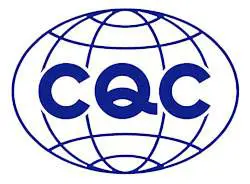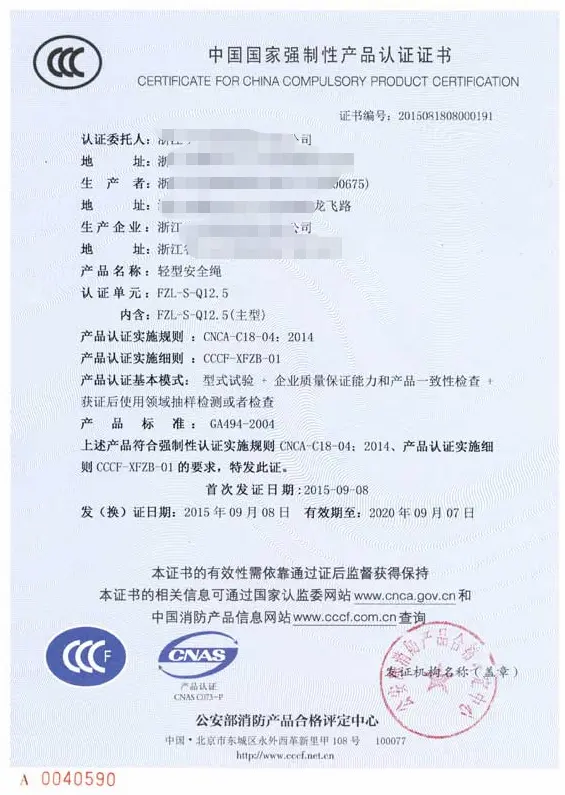
What is the CQC Certificate?
The CQC (China Quality Certification) mark certification is one of the voluntary product certification services offeRED by the China Quality Certification Center (CQC). The CQC mark signifies that a product meets quality, safety, performance, electromagnetic compatibility, and other certification requirements. The certification scope covers over 500 types of products, including mechanical equipment, electrical appliances, electronics, textiles, and construction materials. The CQC certification primarily focuses on safety, electromagnetic compatibility, performance, and harmfUL substances to ensure consumer protection and product quality, while enhancing the international competitiveness of domestic enterprises.

Significance of the CQC Certificate:
1. High Certification Value, Aligning with International Standards: Enterprises obtaining CQC certification meet technical requirements consistent with international standards, significantly increasing the certification’s value.
2. Alignment with National Mandatory Product Certification: When CQC-certified products are listed under the CCC (china compulsory certification), they can be converted into ccc certificates without re-testing, ensuring consistency in product certification.
3. Brand Building and Market Competitiveness: CQC certification helps establish a product's safety and brand reliability, facilitating market entry and increasing brand recognition.
4. Cost Reduction: CQC certification reduces the need for repeated testing, lowers production costs, and decreases product risks for businesses.
Product Categories Eligible for CQC Certification:
- 001: Electronic products and components
- 002: Household appliance parts
- 003: Electrical accessories
- 004: Lighting appliance accessories
- 005: Power tools and accessories
- 006: Small and medium-sized motors and parts
- 008: Household appliances
- 009: Commercial machinery
- 010: Lighting appliances
- 011: Electric wires and cables
- 012: Low-voltage electrical appliances
- 013: Automotive parts
- 014: Motorcycle parts
- 015: Tires
- 016: Glass products
- 017: Power system protection and automation devices
- 019: Electric meters
- 020: Low-voltage equipment and accessories
- 021: High-voltage equipment and appliances
- 024: Photovoltaic (PV) and power storage products
- 025: Motor vehicle products
- 027: Testing and control instruments for experiments
- 028: Earth-moving machinery and parts
- 029: Electric vehicle charging connectors
- 030: Wind energy products
- 031: Household photovoltaic and solar thermal products
- 034: Health products
- 036: Safety certification for food contact products
- 038: Bicycle components
- 039: Unmanned aerial vehicles
- 040: Explosion-proof electrical products
- 103: Textiles
- 108: Construction products
- 109: Sanitary ware
- 110: Cement products
- 113: Toys
- 116: Mechanical products
- 118: Electronic bidding and tendering systems
- 123: Lightning protection products
- 125: Audio and video products (performance)
- 127: Electric vehicle charging facilities (Charging Alliance logo)
- 129: Bearing products
- 130: "Restriction of hazardous substances" certification (RoHS)
- 134: Non-metallic materials and components performance mark certification
- 138: Student supplies
- 140: Polycyclic aromatic hydrocarbons (PAHs) restriction certification
- 142: Lead-acid batteries and batteries
- 161: Beidou vehicle network
CQC Application Process:
1. Application Acceptance
2. Document Review
3. Sample Reception
4. Sample Testing
5. Factory Inspection
6. Compliance Evaluation
7. Certificate Approval
8. Certificate Printing, Issuance, Delivery, and Management
Required Materials for CQC Application:
1. Product manual
2. Product specification
3. Product maintenance manual
4. Product circuit diagram (including schematic and printed circuit board layout)
5. Description of differences between the main model and covered models in the same application
6. List of critical components related to safety and components that affect electromagnetic compatibility
7. Copies of certification documents for key safety components
8. cb test certificate and report (if available)
9. Trademark authorization letter (if applicable)
CQC Certificate Information:

Difference Between CQC and CCC:
CQC certification is voluntary, while ccc certification is mandatory under Chinese law. Generally, products requiring CCC certification do not overlap with CQC-certified products. Products not covered under the CCC certification directory can often apply for CQC certification.
Email:hello@jjrlab.com
Write your message here and send it to us
 IEC 60529 IP Rating Ingress Protection Standard
IEC 60529 IP Rating Ingress Protection Standard
 IEC 60601-1 Medical Electrical Equipment Basic Saf
IEC 60601-1 Medical Electrical Equipment Basic Saf
 European Authorized Representative Medical Devices
European Authorized Representative Medical Devices
 EU Waste Electrical and Electronic Equipment Direc
EU Waste Electrical and Electronic Equipment Direc
 How to Get CE Approval
How to Get CE Approval
 Accelerated Ageing Test
Accelerated Ageing Test
 IP Ingress Protection Testing
IP Ingress Protection Testing
 How Does a Product Get an Energy Star Label
How Does a Product Get an Energy Star Label
Leave us a message
24-hour online customer service at any time to respond, so that you worry!




